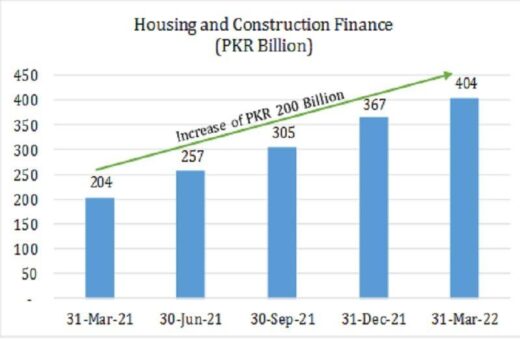KARACHI: The State Bank of Pakistan (SBP) on Wednesday enhanced transaction limits for Assan accounts to further expand outreach of low risk accounts.
As per the new limits for Assan Account, total debit per month shall be Rs 1 million and total credit balance limit has also been increased to Rs1 million.
Previously this limit was Rs500,000
The SBP while referring to BPRD Circular No. 11 of 2015 and BPRD Circular Letter No. 32 of 2017 regarding the captioned subject, wherein accounts namely Asaan Account and Asaan Remittance Account were introduced to extend benefits of financial services to unbanked/ under-banked segments of population.
READ MORE: SBP issues list to impose 100% cash margin on import
The transaction limits for Asaan Remittance Account are:
• Maximum Credit Balance Limit: Rs. 3,000,000
• Cash withdrawal Limit: Rs. 500,000 per day
• Fund Transfer Limit: Rs. 500,000 per day to any other account
• Local Credit allowed: Rs. 1,000,000 per month
• No commercial remittance allowed
Following guidelines issued through Circular No. 32 of 2017
READ MORE: SBP raises mark-up rate for export financing scheme
Asaan Remittance Account
State Bank of Pakistan (SBP) has been actively pursuing the goal of financial inclusion in the country by expanding the outreach of banking services to all segments of society especially to the unbanked or under banked population. The strategy helps to increase documentation of economy, create saving habits among the masses for returns/profits on their savings and generates opportunities to access credit and insurance facilities through the formal financial sector.
With the view to promote use of bank accounts by home remittance recipients (beneficiaries), SBP has decided that banks may open ‘Asaan Remittance Account’ of prospective beneficiaries of home remittances on the pattern of Asaan Account introduced by SBP vide BPRD Circular No. 11 dated June 22, 2015. This will facilitate opening of bank accounts by low risk customers to receive home remittances through proper accounts instead of resorting to traditional cash over the counter transactions.
In this regard, due diligence and other controls specified for Asaan Account shall also be applicable for Asaan Remittance Account. However, following additional features shall apply while opening and maintaining these accounts:
READ MORE: SBP allows commission payment to foreign brokers
Account Opening Form: In addition to the requirements specified under Asaan Account Guidelines, account opening form should have IBAN of the Asaan Remittance Account and names of prospective remitter(s) stating relationship with the account holder as well.
Limited mandate: This account shall be fed through Home Remittances from abroad only and no local credit shall be allowed in the account. Further, no commercial remittances shall be deposited in the account.
Transaction Limits/Turnover: There will be (i) maximum credit balance limit of Rs. 2,000,000 (ii) cash withdrawal limit of Rs. 50,000 per day and (iii) fund transfer limit from Asaan Remittance Account to any other account of Rs. 50,000 per day.
Banks/MFBs should launch awareness campaign to sensitize general public about the benefits of this product i.e. security, issuance of Proceeds Realization Certificate (PRC), timely credit and complaint resolution. Banks/MFBs may also coordinate with overseas employment promoters to reach potential remittance niche for opening of these accounts for self and family members.
READ MORE: SBP increases policy rate sharply by 250bps to 12.25%
The SBP issued following guidelines on June 22 2015:
State Bank of Pakistan (SBP) has been actively promoting financial inclusion in the country by expanding outreach of banking services to all segments of the society through conventional and innovative channels. However, despite SBP’s efforts, a large portion of population still remains excluded from financial services. In order to enhance the financial inclusion in Pakistan, SBP has formulated a National Financial Inclusion Strategy (NFIS) wherein a target of 50% growth in bank accounts by adult population by the year 2020 has been set out.
2. To facilitate the banking industry to achieve the aforesaid objective, SBP has decided to simplify account opening requirements/procedures and introduce a new account category namely “Asaan Account” for low risk customers. Accordingly, the comprehensive Guidelines with simplified account opening procedures have been developed. The simplified approach for opening of these accounts by banks is designed to extend benefits of financial services to common people especially unbanked/under banked segments of population.
3. The banks may convert existing Basic Banking Accounts (BBAs) to Asaan Accounts provided prior consent of customers is obtained and Terms and Conditions of Asaan Account are conveyed to them. However, banks shall not recover any charges for conversion of BBAs to these accounts. Further, in case the Asaan Account holder requires financial services for higher than the specified transaction limits, the Asaan Account may be converted to regular account subject to completion of Customer Due Diligence as per ‘AML/CFT Regulations’ and ‘Guidelines on Risk Based Approach’ for Banks/DFIs and other applicable requirements.
4. To achieve the targets set out in NFIS, banks shall develop quarterly & yearly plans to open Asaan Accounts and submit quarterly reports to SBP as per the attached Annexure ‘A’ within seven days of close of each quarter. The first quarterly report as of September 30, 2015 should be submitted to this Department by October 07, 2015. The banks shall also launch public awareness/media campaigns to sensitize general public about the benefits of banking services and features of Asaan Account as per the Guidelines.
5. The Guidelines for the Asaan Accounts are attached for compliance in letter and spirit which shall take immediate effect. Banks shall upgrade their systems, controls and procedures in accordance with these Guidelines to incorporate the requirements of Asaan Account latest by July 31, 2015.



